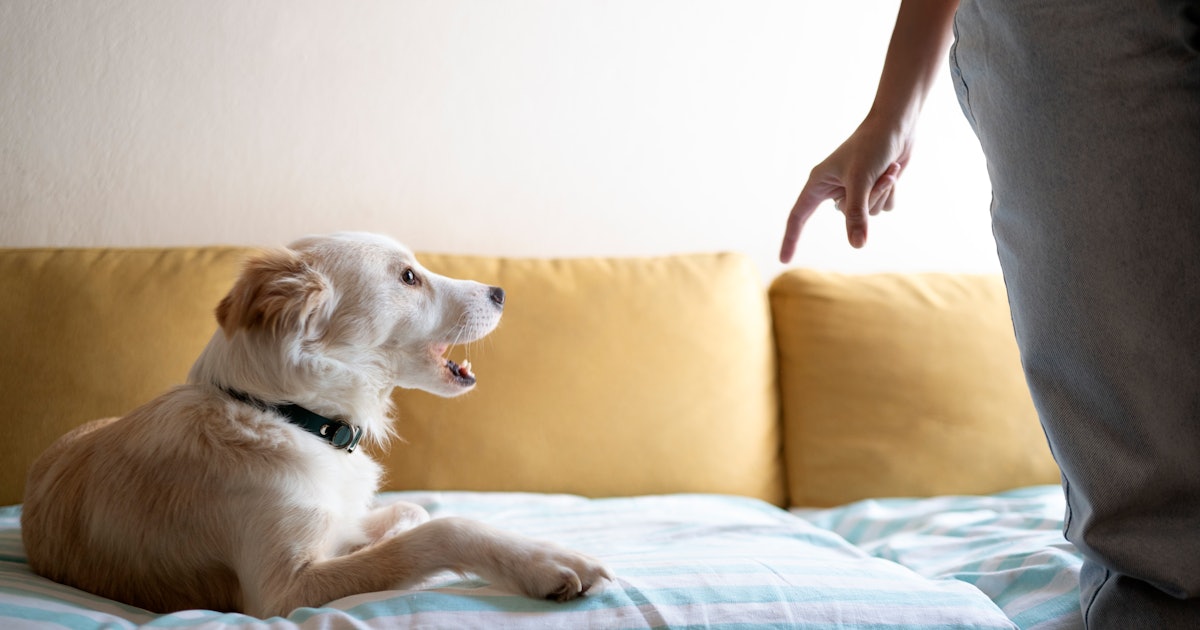
[ad_1]
When I had my son, I had about three weeks of the baby blues — wondering what on Earth I was supposed to do with myself and this new baby, crying daily at 3 p.m. on the dot (oh, hormones), and just generally being an emotional wreck. Fortunately for me, that morose phase went away on its own in a couple weeks. When we got a puppy, my quality of life plummeted again and I felt just the same. Did we screw up? I’m so overwhelmed. And that phase lasted a lot longer. So, what are the puppy blues, and how long do they last for most new dog owners?
What are the puppy blues?
Borrowing its phrasing from the baby blues, the puppy blues is basically the same. You bring home a new puppy, and very quickly, you realize just how much of your time they take up. They’re peeing and pooping everywhere but outside, eating your favorite shoes, biting and wanting to wrestle constantly — it’s just a lot. It can create feelings of anxiety and overwhelm, and yeah, even have you second guessing whether this puppy was such a good idea.
“Feeling regretful or depressed after getting a puppy is a relatively common feeling, similar to being a new parent,” says Dr. Carly Fox, DVM, senior veterinarian in the emergency and critical care services at the Schwarzman Animal Medical Center. “Puppies require a lot of time, effort, and patience. It is not unusual that someone feels tired, frustrated, and a loss of free time when adjusting to having a new puppy at home.”
How long do the puppy blues last?
This depends on you — whether you have experience with puppies or maybe over-romanticized how fun and cute they’d be — as well as your puppy’s personality and breed. Smaller dogs tend to reach behavioral maturity at 9 to 12 months of age, while medium dogs take until 12 to 18 months old, and large breeds can take as long as three years. Small breeds also tend to get through teething faster than large ones, Teller says, while large breeds tend to finish their potty training earlier than small dogs.
“The length of time the puppy blues last can vary significantly, from a few days to months. The first couple of weeks are definitely the most intense. Puppies usually start learning basic commands and routine by 3 months old. By 6 months, in most cases, both parties have settled into their new roles,” Fox says.
Dr. Lori M. Teller, DVM, DABVP, clinical professor in the department of Small Animal Clinical Sciences at Texas A&M University, agrees that the puppy blues are generally pretty short-lived, and they’re more common in folks who didn’t know what to expect before getting a puppy. “It is highly recommended that you do research about living with a puppy and your intended breed or breed mix before getting it,” she says.
How to survive the puppy blues
Here’s what both veterinarians recommend for getting through the thick of all that training, mischief, and early puppyhood mess:
- Get help from your veterinarian. “Puppies undergo a significant amount of changes and growth in just a few short months, and sometimes this is overwhelming. Your veterinarian or a member of the staff can help you manage some of the more challenging moments of puppyhood, such as housetraining, teething, and sleeping through the night. Having realistic expectations and positive training strategies can help an owner understand how long it may take to successfully housetrain a puppy or how long teething may last,” Teller says.
- Tire your puppy out. “Keep your puppy mentally and physically stimulated by purchasing puzzle toys, chew toys, and engaging in age- and breed-appropriate exercise. Get help if you can — employ a dog walker, local teenager, or friend to help with some of the walks and care,” says Fox.
- Start crate training (and all training) right away. “Crate training is the best way to get your puppy on a schedule and limit accidents,” Fox says. “This includes walks and wee-wee pad training, socialization and play, and feeding. Expect bathroom accidents for several weeks to even months. By the second to third week, start introducing basic commands with positive reinforcement.”
- Sign up for puppy obedience classes. “Another advantage to these classes, besides your furry friend learning good manners, is that you will realize that you are not alone in your frustrations over the time and energy it can take to raise a puppy,” says Teller. “Your classmates will be experiencing the same highs and lows that you are. And your puppy will make new friends and come home exhausted.”
- Don’t leave teething puppies unattended, and stay on top of your vet’s health recommendations. Teething puppies can chew up just about anything, and swallowing foreign objects can cause a whole host of issues, Teller notes. Fox says getting your puppy vaccinated is life-saving preventative care. Getting pet insurance can also save you thousands of dollars in emergency care, should your puppy do something inadvisable, she adds. Knowing you have done everything you need to take good care of your puppy can reduce your stress about their wild antics, at least a little.
The best thing you can do to avoid the puppy blues is to set your expectations about what owning a puppy is really like. “Puppies are adorable, fun, entertaining, and will love you unconditionally. They will also suck up your free time, urinate on your best rug, and chew up your most expensive shoes,” Teller says. “In other words, expect to feel the full spectrum of emotions and to live in chaos temporarily. What’s amazing is what you have when puppyhood is over: a well-adjusted, socialized companion that greets you when you come home and loves you unfailingly, whether you’ve had the best day of your life or the worst.”
[ad_2]